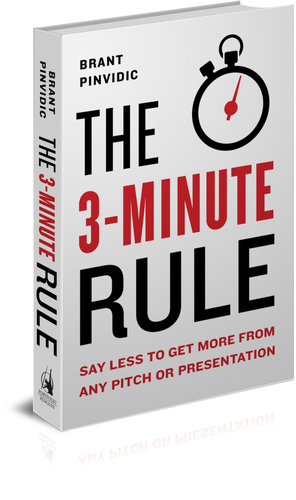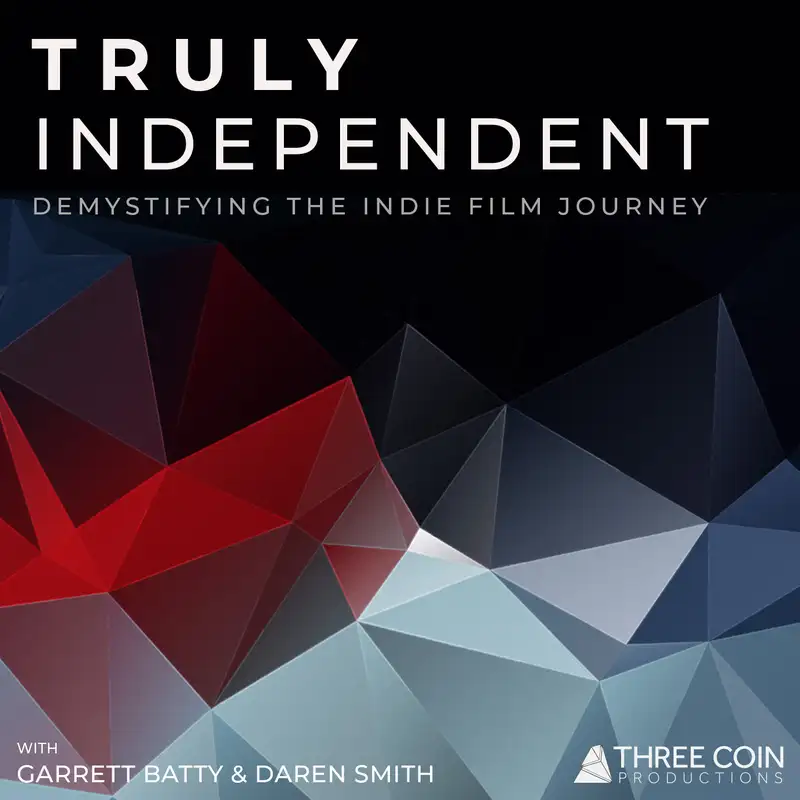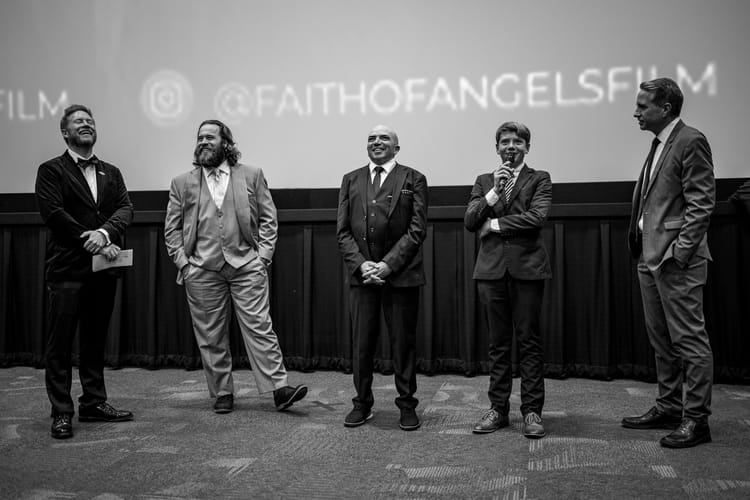How To Pitch Your Film Projects

With season 2 of Truly Independent well underway, we're focused on the earliest aspects of the filmmaking process - the ideation, pitching, development, and fundraising.
In this episode of the show we talk about three types of pitches - which I'll outline below, but be sure to check out the full episode to get the complete story!
Learning to pitch, or to "sell", your ideas is essential to your progress and success in your career. So today I'm excited to share what I do to move projects forward with successful pitches.
Three Types of Pitches
Garrett and I talk about three types of pitches in this episode, and it's essential to understand and then work to master each one.
- The Cold Pitch
- The Intro Pitch
- The Scheduled Pitch
We'll dive into each, but the important thing to understand is that there are different types of pitches, so you need to prepare different types of pitches.
The Cold Pitch
Think of this as a "cold" email or a Direct Message (DM) on a social media platform. The word "cold" is referring to the connection you have with this person. A "burning hot" relationship is one you share with your spouse or partner, a "warm" connection is someone you've recently met or been introduced to, and a "cold" connection is brand new - you don't know each other, or, at very least, the person you're pitching doesn't know you.
The goal of this pitch is to get them to engage in a conversation with you. So, just as you don't ask someone out on a date and to marry you in the same sentence, you shouldn't pitch your full idea in the first message to them.
Something simple, short, concise, and personal is what we're aiming for here.
Take the time to understand who you're messaging, personalize the message - rather than copy/pasting the same thing to 100 people every day - and be professional about it.
Here's a cold-email pitch template that I've used to great success. Credit to Peter Diamandis for sharing this one with me and his other email subscribers.
Hi [Name]!
[State your credentials in the first line]
[Make the next steps easy for them to take action]
Here's what that looks like in practice. I'll share the example Peter shared, and then my version I've been sending to busy investors that might potentially want to look at my film fund.
Version 1:
Subject: MIT AI Startup / Steve <> Nick
Dear Steve,
I’m an MIT graduate and have recently exited my first company. I’m seeking pre-seed capital investment for an AI-related company that my best friend and I are super excited about starting.
I’m attaching a brief PDF overview of the concept and would welcome a chance to discuss it with you. My mobile is +1-310-555-1212
Who on your team should I coordinate with to schedule a brief Zoom?
Warmly,
Nick
Version 2:
Subject: 4x Film Producer Raising A Film Fund (Name Sent Me) / Daren <> Name
Hi [Name]!
I'm an independent film producer based in Utah with four features under my belt, two of which were just in theaters in Fall of 2024.
I'm seeking investment for Producer Fund I, a film fund to produce 10 indie features over the next three years.
I'm attaching a short pitch deck with an overview of the fund, and would love to discuss it with you. My cell is ###-###-####.
Who on your team should I coordinate with to schedule a brief Zoom/phone call?
Best,
Daren
Now, keep in mind that cold messages require a lot more scale to be successful. If you think you'll raise $100,000 from sending cold emails to five people, you're not even scratching the surface.
My approach is to set out to send at least 100 messages, expecting maybe 10 will turn into conversations and maybe 1 out of those ten will end in an investment.
So set aside time to send out 5-10 "cold" emails or DMs every day and do it for as long as it takes.
The Intro Pitch
I love this pitch. This is your "elevator" or "one-minute pitch" that you've practiced and rehearsed and have ready to go at a moment's notice.
But you don't just go around forcing it into people's ear holes. NO! Don't do that, please.
Instead, get an intro from someone!
If you're at a networking event, ask for someone you know to intro you to someone you want to talk to. "Hey, have you met Daren? He's working on something awesome in indie film."
If you're looking to connect with someone specific, get an intro. You can hop on to LinkedIn, type in "angel investor" in the search bar, and likely come back with thousands of 1st and 2nd degree connections - meaning either you already know them or someone you know knows them.
Then ask for an intro!
With this pitch, give them the high level overview of what you're working on in a minute or less, then stop talking! Leave some space for them to respond, to ask questions, to gauge their interest level. If they're not interested, don't push it. Follow up with a question about what they're working on.
If they start asking questions, then you can give answers and continue the conversation like a normal human being 😄
The Scheduled Pitch
This is where you've been invited to come pitch, either over a call or meeting with an investor, or a meeting with a development executive, or the like.
This is where you have a time an a place agreed upon for you to deliver a pitch to someone who is ready and willing to receive it.
My best resource for this is to have you go pick up a copy of The 3-minute Rule by Brandt Pinvidic.

The takeaway - hone a perfect, three-minute-or-less pitch, and leave the rest of the time for Q&A.
Don't come into the room with a 100-page slide presentation, and 25 minutes of prepared pitch material.
You want to hook them, leave some room for Q&A, and sell them on working with YOU as much as you're selling them on the idea. They can't do that if you don't give them a chance to get to know you.
Work on these three types of pitches over the coming months, and watch how your ability to move your project(s) forward changes for the better.
And be sure to listen/watch the full episode of Truly Independent below:








Member discussion